It is important to specify, however, that at no time does the new kingdom become dependent on the Crown of Castile, but rather retains its full autonomy, depending on a common sovereign , that if in Spain it is Felipe II, in Portugal it is Felipe I. They are, therefore, two territories governed by the same person –following the classic model of that complex monarchy– but in no way subordinate to each other.
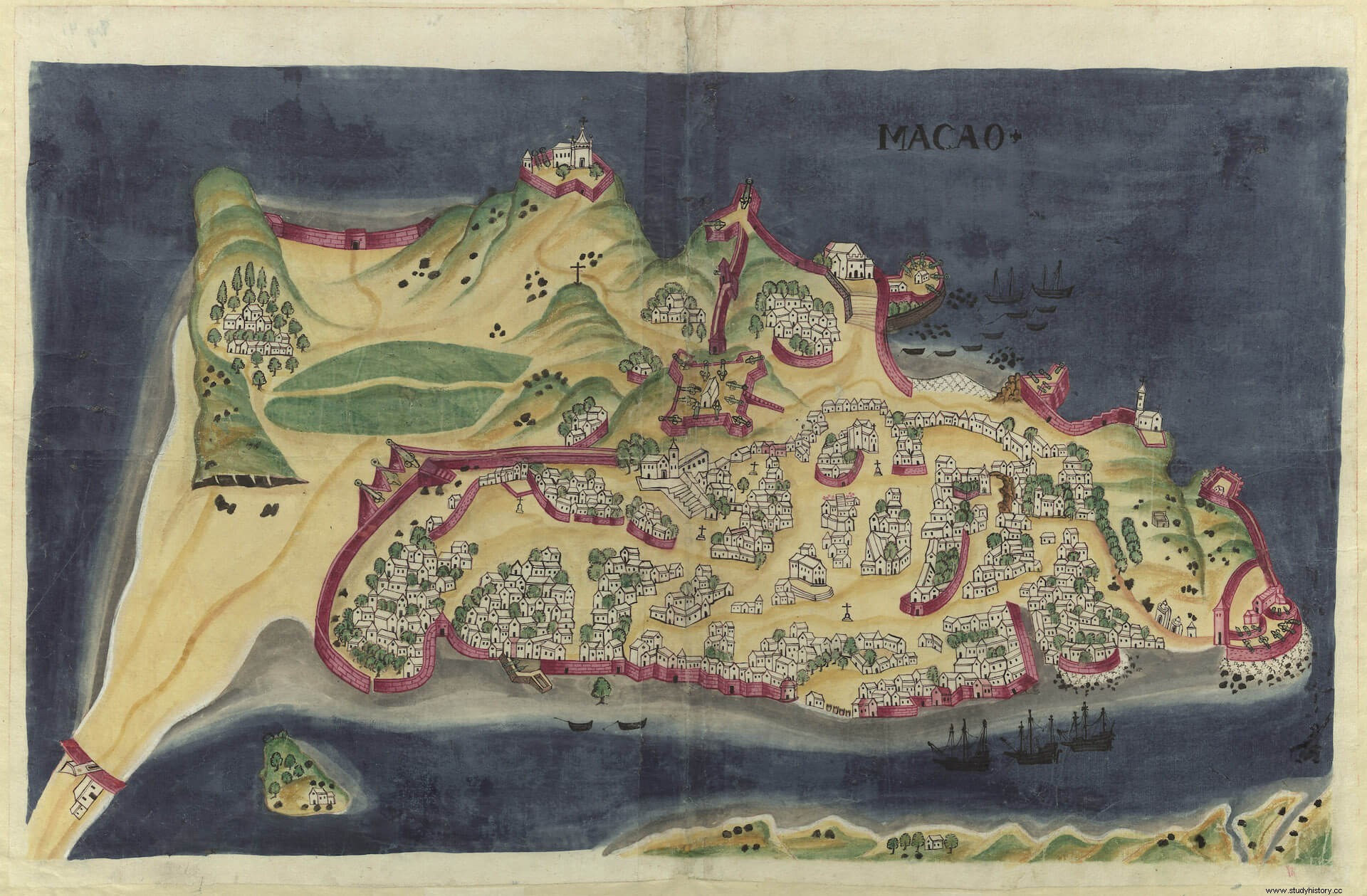
Furthermore, the king himself will take pains to respect scrupulously that duality, and thus, except in very exceptional cases, the Spanish will not use the Portuguese route, via the Cape of Good Hope, nor the Lusitanians the Spanish, through the Strait of Magellan or Acapulco. Likewise, there will be no commercial exchanges between Macao and Manila , but both cities will maintain their usual commercial circuits with their respective metropolises. The same applies to defense. Only on very few occasions will troops or armies from each of the two countries cooperate with those of the other, generally with mediocre results, due to historical misgivings. There will certainly be "permeabilities", as Loureiro says, in neighboring areas, but the rule was a strict separation, which did not stop creating problems, both due to commercial rivalries and the difficult articulation between the Portuguese model, based on factories and fortresses along the coast, and the Spanish, who sought control of entire regions.
However, in Spain the dynastic union was seen as a personal aggrandizement, and he did not hesitate to proclaim that his king was "lord of half the world", without entering into legal distinctions. Because the truth is that horizons expand almost unlimitedly. For just mentioning three men, Lieutenant Pedro Ordóñez de Ceballos can sign, without blushing, a book entitled Viaje del Mundo , collecting his experiences, that he would end up as a "virtuous and alms-giving clergyman"; the second lieutenant Miguel de Jaque, wanders almost frantically through Asia and America, hardly resting in Spain, before returning again to the Philippines to find, it seems, angry death, and Captain Domingo de Toral notes that he has sailed 10,000 leagues by waters of the monarchy, without counting the long return to Europe by land, via Isfahan, Baghdad, Aleppo -where he found Jews expelled from Spain, who read Lope and "whose common and home language was Castilian"-, Alexandretta, Marseille and Barcelona.
Spaniards in Asia
These three men, like the other Spaniards in Asia, immerse themselves naturally in a wonderful universe. Given the evidence of the sumptuous oriental silks, of rivers of pearls and spices more valuable than gold, of warriors "whose greatest greatness" was to have as a cup "a skull set in gold and stones that belonged to a famous Spaniard", no It is strange that there is talk of trees whose leaves, if they fall into the sea, turn into fish, and, if they land, into butterflies; of “an eagle so big that it carries an elephant on its nails”; “of the bird without feet that lives in the air and that eats dew”, and of an animal that up to the chest has the shape of a woman, and the rest of the body of a scorpion. Nor is it surprising that the soldiers carried, stored in reeds, some flies that counteracted the poison of the arrows.
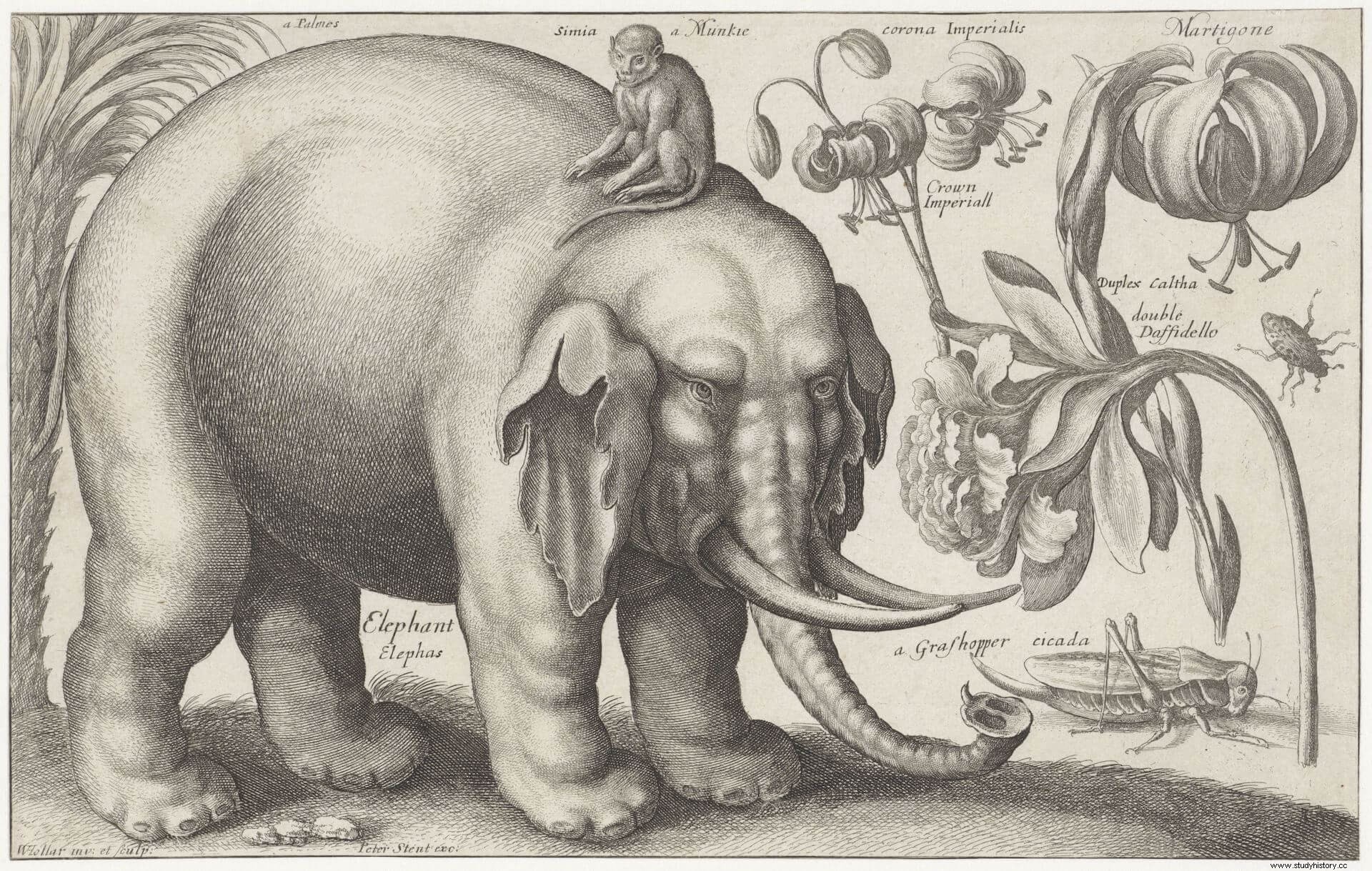
Subjects of a king who “rocked the world for through their captains”, in the words of Argensola, proud of “the reputation that all those nations have for the Castiles (Spaniards)”, they affirm, without hesitation, that “the experience that fifty Spaniards have made has shown well ever what the Roman legions ”, each of which lined up thousands of men. For this reason, the mirror of captains that Gallinato was exclaims that "in all the kingdoms and lands of the world our flags have been unfurled (and) we have to see them flutter until we conquer Great China." Some went so far as to say that "twenty-five soldiers was enough for all of China ”, and another, more modest, calculated that “less than sixty good Spanish soldiers” was enough.
In effect, as Ollé has studied, projects for such an adventure were carried out, the so-called “Company of China ”, which as reality prevailed and the information was refined, they went from foreseeing that few sixty men to 15,000, Spanish, Japanese and Filipinos in equal parts, a combination, on the other hand, quite usual, although in proportions much minors. The prudence of Felipe II and the disaster of another company, that of England, put an end to these chimeras, but what is significant is that they were carefully studied and nurtured between 1569 and 1586.
It was that then nothing seemed too much, and it showed. Miguel de Jaque participated in the barely credible adventures of a Spaniard, Blas Ruíz, and a Portuguese, Diego Belloso, who up the Mekong enter Cambodia , put an end to a usurping king, move to Laos, replace the legitimate son on the throne, fight against crowds, against war elephants with a katana chained to their trunks and crowned by a castle full of archers or harquebusiers, they are named Great Chorfas and governors of provinces, and end up dying to the iron, as they had lived (see «The Spanish expedition to Cambodia» in Desperta Ferro Special Issue XV:Los Tercios (V). Asia ss. XVI-XVII ). On a smaller scale, Diego de Quiñones, nailed to a chair by his wounds, defeats five hundred Dutch with sixty Spaniards , in Ilo Ilo (Philippines) and still has energy left to lead a counterattack. By the way, Quiñones was a Biscayan, as the Basques were then called, who were considered the most suitable eventually to carry out the conquest of China.
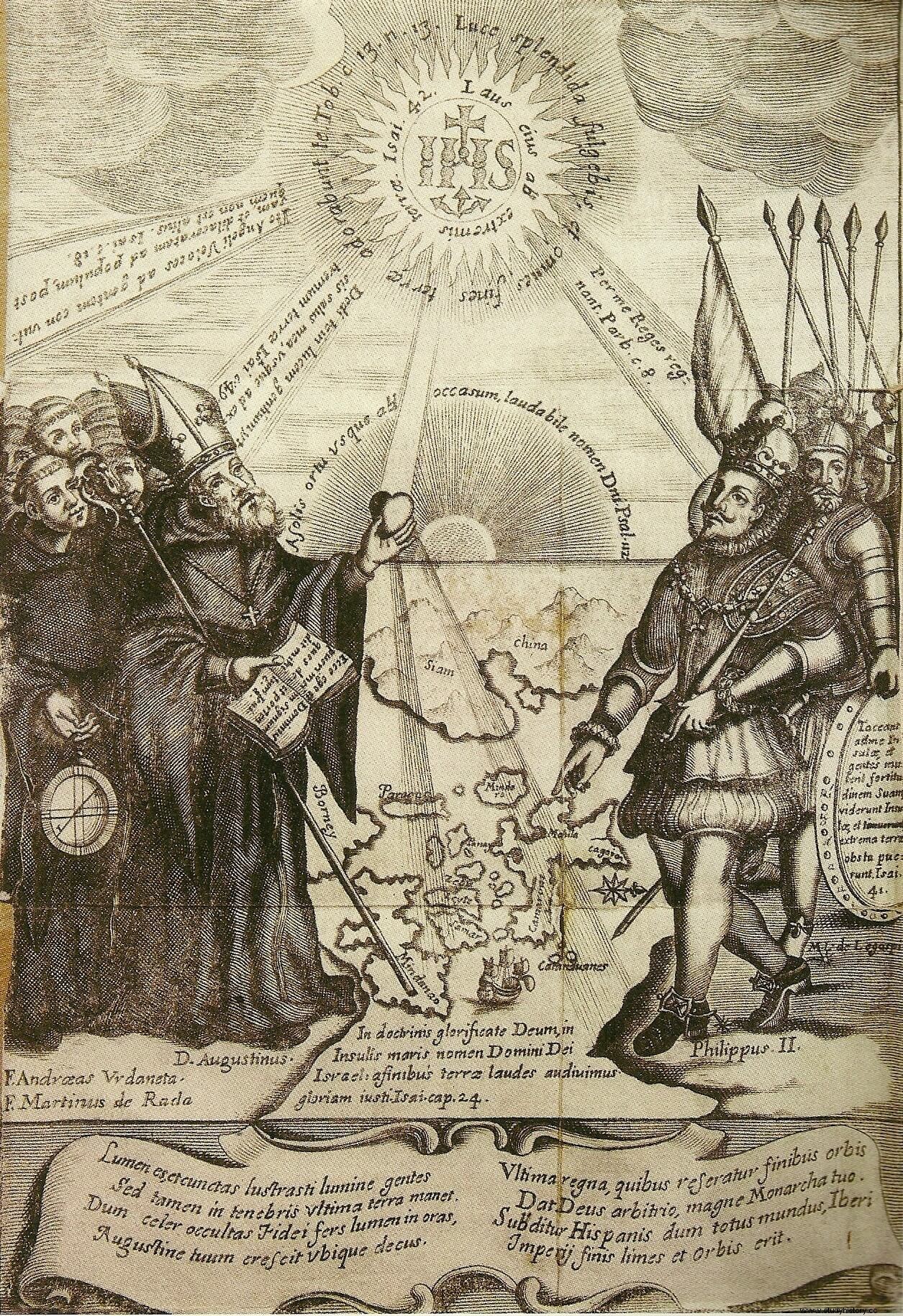
It should be noted that these exploits were not normally performed by thirds, in the sense of permanent units, with an established structure. The Philippines did not have a real garrison until the 1690s, "when the pay camp was founded", made up of a camp master, a sergeant major, six captains and 400 soldiers, including arquebusiers and musketeers. It was always difficult to maintain this meager contingent, decimated by disease, combat and desertions, and this was only possible by recruiting "the scum of New Spain ” and “desperate and expelled from other parts”, and not people “from good Castile”. Portugal, for its part, even enlisted murderers on its ships, for lack of anything better.
Only in specific cases, such as the Acuña expedition, which recovered the Moluccas with disconcerting ease in 1606, beating the Ternates and the Dutch, did significant forces accumulate. Specifically, four companies built in Spain, six in Mexico and two from the "Manila field", in addition to 344 Filipinos with their own field master and four captains, all indigenous. By the way, Acuña made the inhabitants swear allegiance to the King of Spain, when the Portuguese had always considered those islands as their own. The Lusitanians did not forget that arrogance, just as they did not forget that Philip II had forced them to close their European ports to the English and Dutch. This provoked the aggressive penetration of Asia by both nations, in search of products that they could no longer acquire in Lisbon, with disastrous consequences for Portugal's interests in the region.
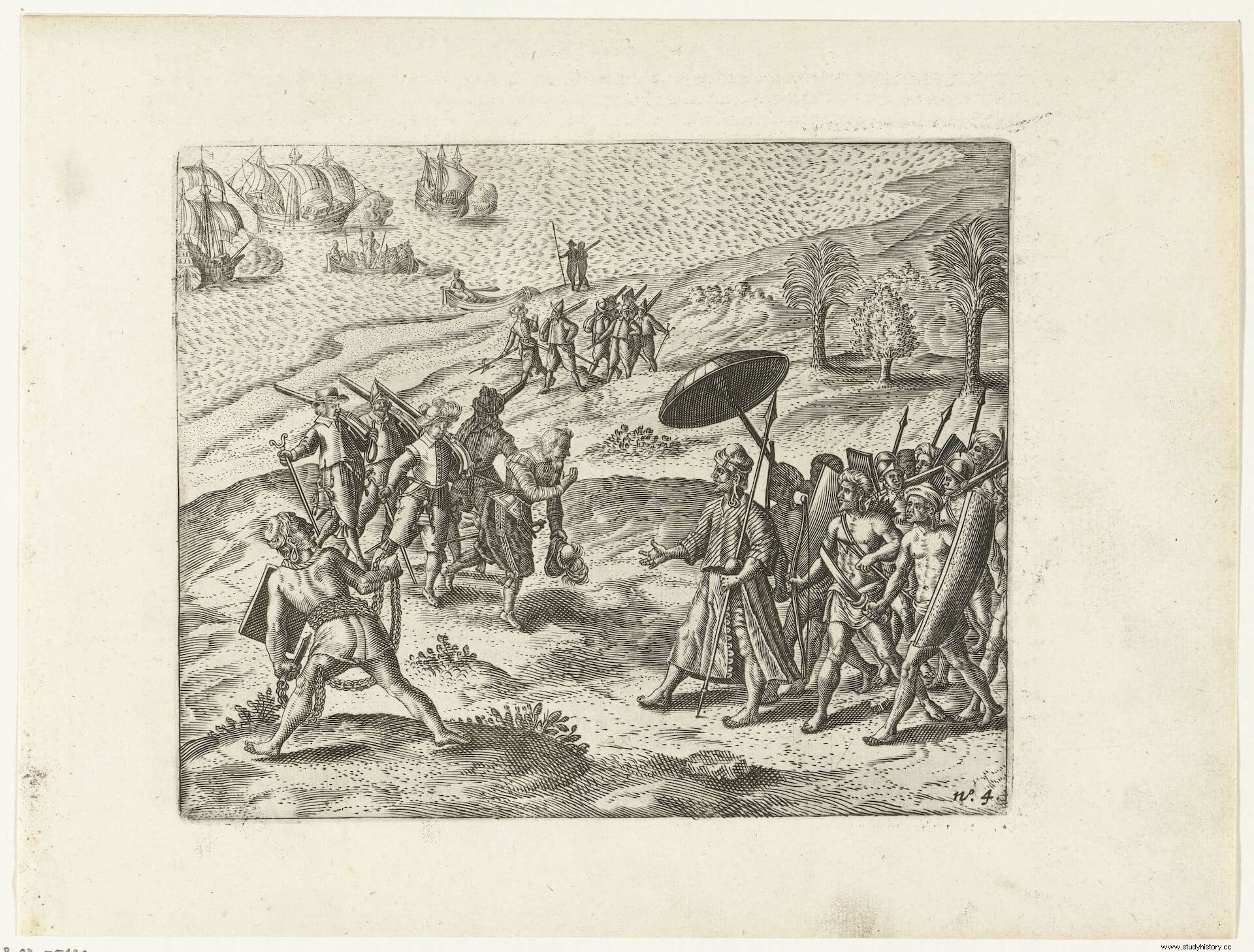
Lacking enough regular troops, the systematically to "adventurers" who often served without pay, hoping to be compensated with eventual loot, as had been the case in the conquest of America (see Desperta Ferro Special Number XI:Los Tercios (IV). America XVI-XVII c. ). Even so, there was such a shortage of men that in times of crisis they had to resort to squires, usually elderly people, whose task was to accompany the ladies when they went out into the street or when they went to mass, and to mobilize religious, not a few of whom were former veteran soldiers. A Jesuit came to command the artillery that defended Manila.
The weaponry that was used in those remote lands was the usual one in the European theater, but with an intensive use of arquebuses and muskets, while the pikes used to be replaced by halberds and half pikes, more manageable. Money boxes, a kind of primitive grenades, and locally made blunderbusses, which were said to hold up to fifty bullets, and were very effective at short distances, were also regularly used.
Toral Sunday, from Flanders to India
An example of the rare Spanish-Portuguese cooperation was that of the veteran of the War of Flanders Domingo de Toral , assigned in 1629 as “entertaining” –a kind of staff officer–, to Miguel de Noroña, named viceroy of the State of India, as the Lusitanian possessions in Asia were called (see «Domingo de Toral y Valdés, de Flanders to India»in Desperta Ferro Special Issue XV:The Tercios (V). Asia XVI-XVII centuries ). The crossing was rough, which adds to the wonder of trips like the ones mentioned above. It lasted six months, from Lisbon to Goa, the state capital, with little water, “strong” wine, which burned the livers, bacon, sardines and “salted fish”, probably cod. Under that regimen, scurvy decimated the navy. Up to 500 men died of various causes, plus another 400 in a galleon that sank. Although worse was what had happened in 1621, when out of fourteen ships leaving Portugal, only one managed to reach Goa.
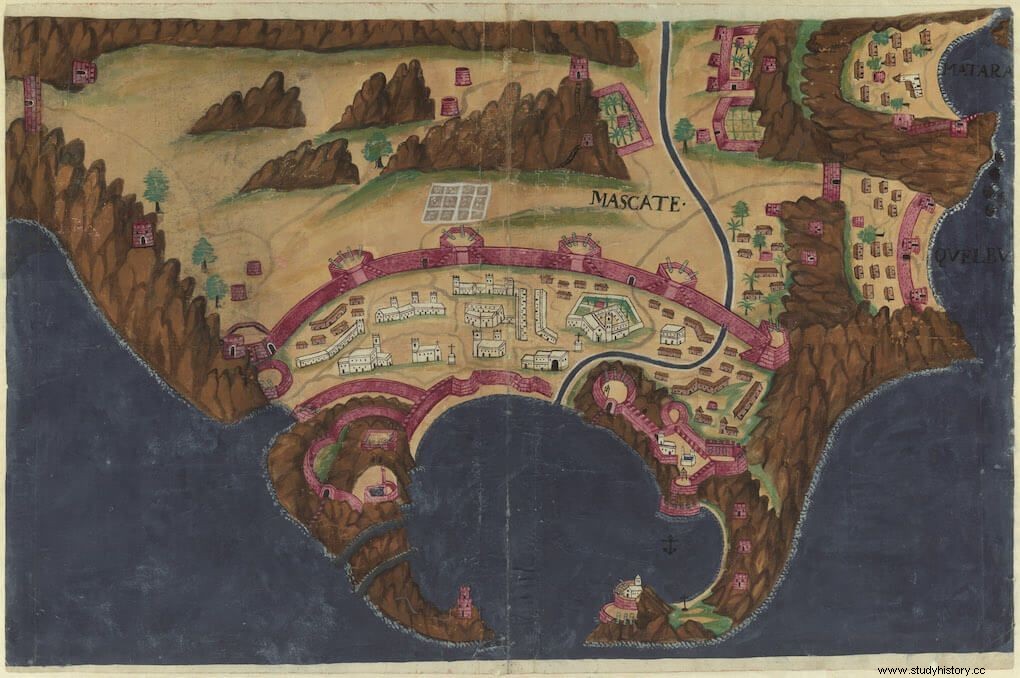
Once they reached their destination, they were put under the orders of Rui Freire de Andrada , Captain General of the Arabian Coast, Muscat based. He was a soldier with an extraordinary career, today forgotten in Spain, although he served the common king. He starred in the tight defense of the island of Kishm, in the Persian Gulf, against the English and Persians, and a fictional escape from his captors, after numbing them with a narcotic that he mixed with his drink.
Toral left an excellent description of him –“one of the most well-understood soldiers in India”–, which portrays him as a true son of Machiavelli:“his reason she was more political than Christian”, “she was more cruel than pious”, she believed that “fear did things better than love”, and “she works with her own person very little, with understanding a great deal”. He did not hesitate to behead the crew of a British ship he captured, nor to send the heads to that nation's factor in Bandar Abbas, as revenge for the hundreds of indigenous Portuguese auxiliaries that the British, violating the capitulation of Kishm, allowed to their Persian allies will assassinate. Nor in imposing the same sentence on a subordinate, after having lunch with him, because, to save the life of a woman, he had failed to comply with his order to massacre all the inhabitants of a place. This was, by the way, an instruction that he gave frequently, and that was completed with the systematic felling of palm and fruit trees, so that the desolation would be more complete. It was a deliberate policy of terror against the Persian coastal establishments, which worked, because it forced the Shah to agree to a truce and authorize the establishment of a Portuguese factory in Bandar-e Kong.
With such a character, the discipline he imposed was draconian, and therefore, "in India his soldiers are among the others the most esteemed, as among us those of Flanders, for the obedience they have and the punishment that follows those who do not keep it.”
His ruthless tactics were not at odds with courtesy, which, he said, "is very necessary in war, and what was worth the most and cost the least." That is why, before a fierce naval combat, spectacular hats are exchanged with his enemy, the English admiral, so that they could be better distinguished in the fight, and that is why, while he occupies his command post dressed in pink, his adversary he does it red. The confrontation only began after one and the other had toasted their respective monarchs.
The missions carried out by Toral did not exclude espionage, and thus, using a ruse, he carried out a neat reconnaissance of Hormuz , mythical fortress torn in 1622 by the Anglo-Persians from the Portuguese after an insufficient defense. The Portuguese commander, fearing the inevitable court martial, fled. It seems that he died as a fakir, in Negapatam (India). The second of his was less fortunate; cowardice literally cost him his neck. By the way, the Spanish captain would later contemplate in Isfahan Spanish cannons taken in that square, "with all their signs of the founders and of the generals of the artillery in whose time they were made, with the royal weapons, which I saw and read with a lot of pain in my heart”, he writes.
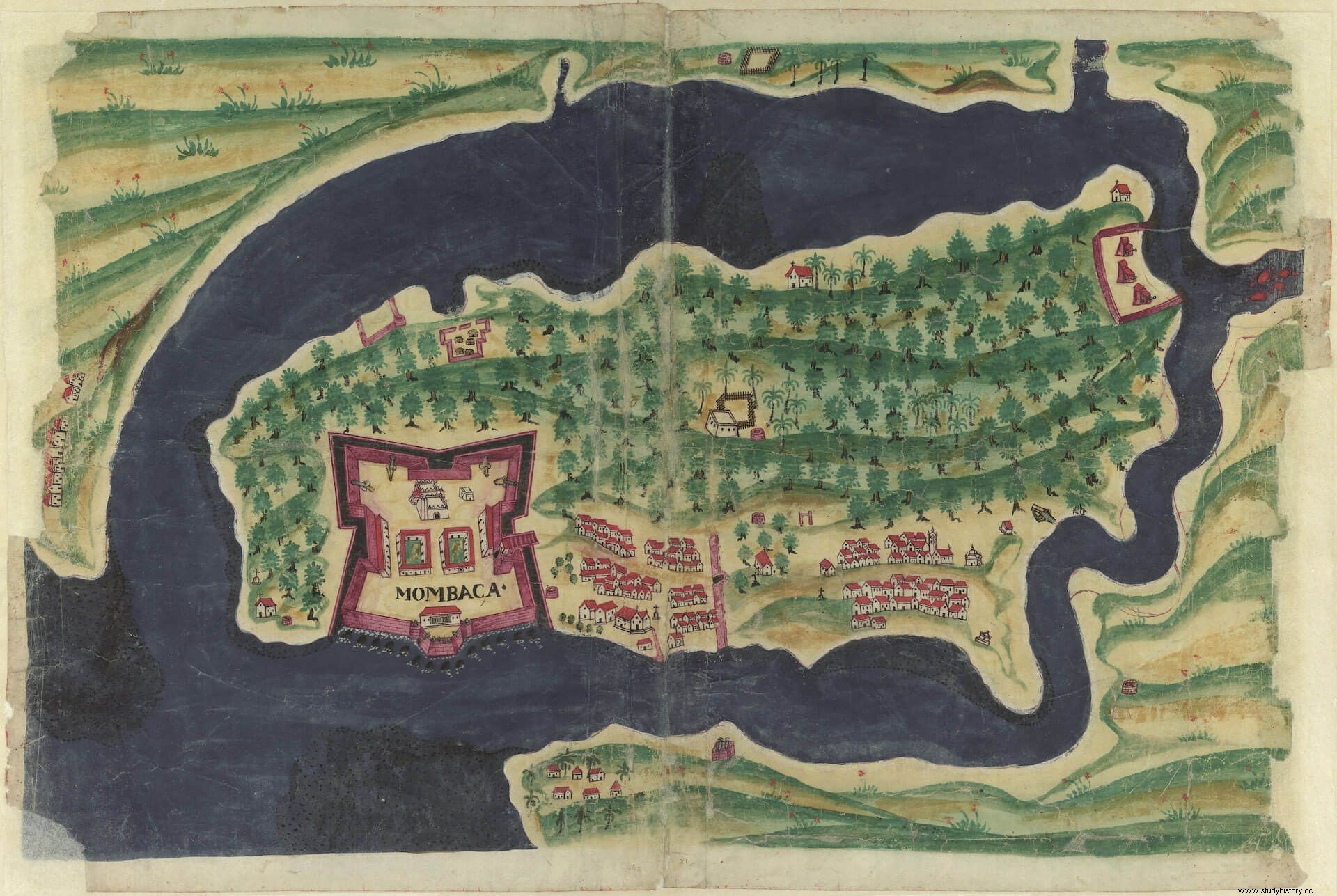
he also participated, in 1631, in the failed attempted recapture of Mombasa , serving with an arquebus, as the canons commanded. He was able to appreciate there that "the Portuguese nation in those parts is not taught this mode of war (siege)" and that it did not act "with the perfection that the Castilian nation is accustomed to in Flanders and elsewhere, because this is done purely personal work, and the Portuguese refer everything to fighting and courage, leaving nothing to industry, because they have it by default; furthermore, that they do not keep the precepts of the orders with the punctuality that war requires”, and with “blind obedience”, which he himself prided himself on practicing.
After exhausting the seas and the deserts, and after five years of absence, the captain will pay a trip to Madrid in 1634 and will deserve the honor of two audiences with Felipe IV –III of Portugal – and the Count-Duke. By then he was a disillusioned man, while his august interlocutors perhaps still believed in ultimate victory; not in vain that was the year of Nördlingen.
At least, so many avatars had made Toral a sage, resigned to his limitations. Thus, he sentences:"with so much experience, I don't know more than at the beginning"; “In this matter of war (has) the greater part of Fortune, (but) the wise man usually limits it”; “It is much better not to lose honor than to win it”, although he still adds:“I am first and my honor ”. The conclusion of that twilight soldier, as the Hispanic Monarchy would soon be, is devastating, and is summed up in the sad sentence that closes the Relation of him :“the next day is always the worst”
